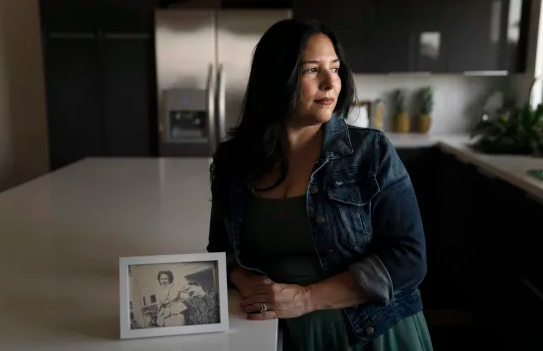Reparations Program for Forced Sterilization in CA Women's Prison Falls Short
2021 reparations program rejecting 4 in 5 people seeking compensation

The State of California actively engaged in the practice of forced sterilization of thousands of female patients and inmates since the 1900s. California’s program, which began in 1909, was by far the country's largest, accounting for a third of all people sterilized in the U.S. under such laws. It was so prominent that it inspired similar practices in Nazi Germany, said an expert on the eugenics movement, Paul Lombardo, a law professor at Georgia State University.
By the late 1970's, long after the peak of the 1930s eugenics movement, California had sterilized an estimated 20,000 people, deemed unfit to reproduce, without their consent. The practice ended in 1979 for state hospitals and in 2010 for state prisons, when eugenics laws were finally repealed.
Yet it was found that forced or coerced sterilizations continued to be performed on people in custody at state prisons or other correctional facilities under the California Department of Corrections and Rehabilitation. An exposé from The Center for Investigative Reporting in 2013 revealed 148 women were sterilized without proper approval from 2006 to 2010, and a separate state audit found that the Department of Corrections and Rehabilitation oversaw the illegal sterilization of 144 inmates from 2005 to 2013.
In 2021, California approved compensation of up to $25,000 for some of the thousands of people who were sterilized, some when they were just girls, for decades by the government, which considered them “unfit to reproduce.”
Stacy Córdova extensively investigated the case of her aunt Mary Franco, who was forcibly sterilized in 1934 when she was 13 years old. Córdova interviewed her shortly before she died. Official documents described Franco as “mentally weak” because of “sexual deviation,” Cordova said in an interview with Noticias Telemundo. However, Franco had been sexually abused by a neighbor, Córdova said, and her family committed her to an institution to protect their reputation. One of the conditions for her release was that she be sterilized.
The institutionalization and subsequent sterilization, which left Franco with lifelong pain and unable to have a family, had a profound and permanent impact. After she was released, Franco, then 17, fell in love with a man, and they got married, her niece said. But when her husband found out she couldn’t have children, he returned her to her parents’ home. “It broke her heart. She never saw him again,” Córdova said.
“She was so feisty," Córdova said, adding that her aunt would have been “floored” by the news of the compensation program. Córdova was moved to tears remembering her aunt and how difficult her life was. “She never thought she was part of something bigger.”
According to a report from Bolts Magazine, 800 women identified by a state audit who underwent procedures that could have resulted in sterilization while imprisoned between 2005 and 2013. However, as of June, the California Victim Compensation Board (CVCB), the body tasked with determining who gets reparations under the program, has approved compensation for only roughly 120 of those survivors.
Advocates are now rushing to meet a New Year’s Day deadline for seeking compensation for victims, and those advocates express frustration by all the bureaucratic hurdles that officials have put in their way, which have resulted in hundreds of denials of women who say they were robbed of their ability to have children. Advocates say they quickly found that the board’s process excluded many women based on the type of sterilization procedure they experienced.
“I think there’s a whole population of hundreds of other women who didn’t even know about the benefit program because they never got the notice that the state was required to send, because the state determined that if you had an ablation you didn’t qualify for benefits,” said John Moore, an Oakland attorney representing a reparations applicant.
“They didn’t believe that ablation was part of sterilization,” said Chyrl Lamar, an organizer with the California Coalition for Women Prisoners (CCWP) and a board member of Felony Murder Elimination Project, who has been helping some of these women appeal their denials. “This is not fair. Some people had gotten out and were trying to have kids with zero results. They can’t have kids.”
Please share this information on and among your networks to spread the word, especially as this reparations program is slated to end January 1st, 2025. If you think you qualify for an appeal based on a denied previous application, visit the California Victim Compensation Board website.
You can read "For Survivors of Forced Sterilization in California Prisons, a Rushed Shot at Justice" at Bolts Magazine for more information. Bolts Magazine covers the nuts and bolts of power and political change, reporting on the local elections and obscure institutions that shape public policy but are dangerously overlooked in the United States, and the grassroots movements that are targeting them.










